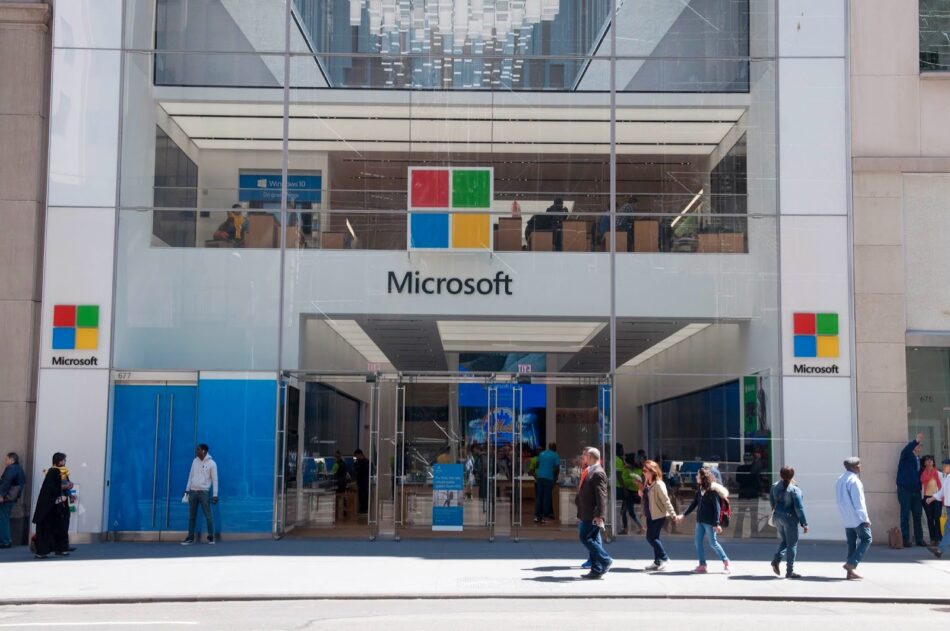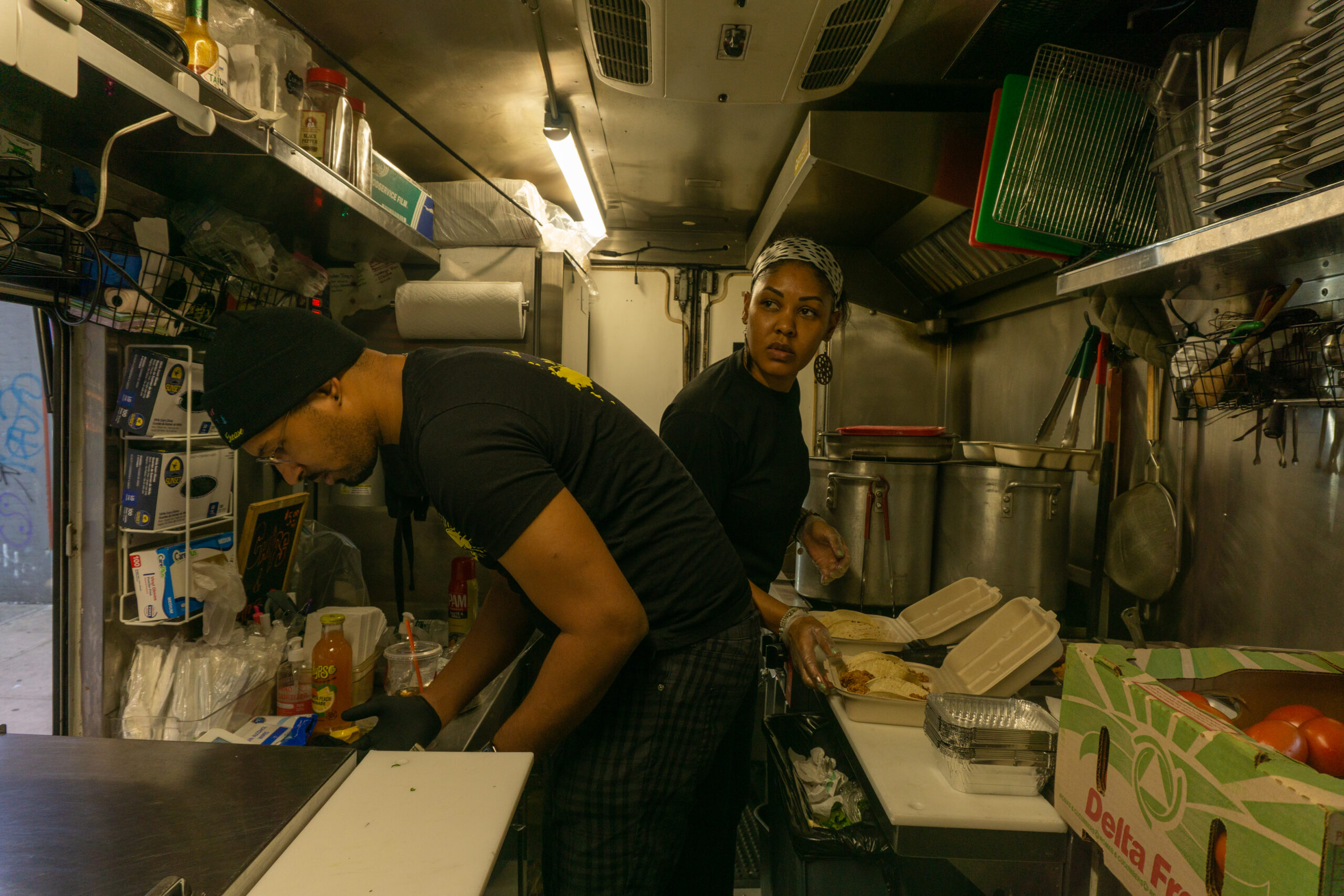NEW YORK, NEW YORK — The Microsoft Garage, a tech innovation center that teams up Microsoft customers with employees to help create and promote business growth, celebrated its New York City opening today on Lafayette Street in SoHo.
The event featured a line of booths representing projects and companies that collaborated with Microsoft Garage to push forward innovative ideas and advanced tech developments. Among the approximately 300-guests were New York City Mayor, Eric Adams and Vice Chair and President of Microsoft Corporation, Brad Smith.
Aside from the catered delicacies, and lofty business conversations between CEOs and tech gurus from the Silicon Valley and New York City, the wide room filled with visual displays served as a preview for the kind of innovation and creativity that will take place in the new space. While some people may merely see robots and abstract scientific theories, the opening of a new Garage site will offer technology development for a higher purpose.
“There is nothing more impactful than a purpose-driven life,” Adams said. “We can create all the tech we want but if it’s going to be administered to broken people with broken systems, we’re broken too.”
When Adams addressed the guests, he shared a personal anecdote about watching an 11-year-old child arrested for robbery when he was a teenager. He says this moment inspired him to fix New York City by fostering an environment that helps people go beyond their circumstances and share their vision with the world. The new Microsoft implementation works to do just that.
Smith reiterates this message in his opening remarks by reminding guests of Microsoft Gargage’s impact around the world, but in particular, New York City.
“It’s for everybody. Especially when we think of the needs everyone has in terms of digital equity and what it means for everyone,” Smith said. “What happens in this garage might be a real game changer for what happens in the future.”
The Garage already has Microsoft volunteers teaching classes at 43 different schools in the city. By hosting hackathons and other collaborative events, as well as teaming up with nonprofits and funding new projects, The Garage paves a path for people to unleash their creativity in ways that they wouldn’t have access to otherwise.
Urban Arts, a program that caters to marginalized schools in New York City and helps students create their own video games, has been able to do just that. Their organization partners students with game production managers, mentors in the field and NYU students to teach game design and computer development software skills. By providing all of the computers and research technology, Urban Arts had the ability to win first place in the Game For Change (G4C) Student Challenge three years in a row. G4C Student Challenge is a national competition that invites students to create digital games that reflect issues in their communities, for the chance to win up to $10,000 in scholarship money.
Daquan Griffiths, an alumni of the program, still remembers the day that Urban Arts visited his high school for the first time. Griffiths says that his school had a large minority population and was in an underprivileged area in the community. By giving kids in these environments the tools and opportunity to succeed, students were able to channel their creativity and reach higher success than the companies creating games as a profession.
“Voices can only be heard as much as you speak to them,” Griffiths said.
Microsoft has also fostered creativity and innovation in students through Alchemist Club Studios, a metaverse portal and learning space for alchemist apprentices who are ready to learn in the digital universe. The founder and CEO of the first reality lab to exist, Wednaud Ronelus, says that Microsoft fully sponsored and supported his lab from the time it was just an idea.
Ronelus invented the lab out of a passion for teaching science to elementary students. He says that many kids who wait until middle or high school already have preconceived notions about the difficulty of science and feel less motivated to devote themselves to the subject.
“In order to educate we have to thin the system,” Ronelus said. “Alchemist Club Studios offers a learning space in a real classroom setting. Any child in the school can come to science class to experience what’s going on in space and nature.”
By ingraining science in students’ regular school life at an early age, Ronelus intends to break down barriers that discourage students with less confidence to believe they can succeed at a challenging subject. By unveiling the theories at a younger age, he hopes that all students will feel more inclined to pursue the field of STEM.
Not all of Microsoft’s projects have a specific goal in mind though. The Garage facilitates an environment where all technological exploration is encouraged. This supports the company mindset that any new advancement will continue to allow for scientific breakthroughs that improve the world and increase accessibility for everyone.
At the AC-State booth, two-feet-wide and three-feet-tall robots attracted a sizable audience as they moved along the table in repetitive movements. Rajan Chari, an employee at the company, says that the project is partially funded by the Garage, which provides labs and space for experiments, and is going towards creating controllable latent states with multi-inverse models. This helps them create algorithms, plan graphs, show models, and then formulate sophisticated skills.
While the robots don’t have a specific purpose at this time, they are providing knowledge about new terrains in the world and can reach spaces that humans can’t.
“These findings will end up in textbooks,” Chari said. They will help scientists create new theories, algorithms, and research that advances science.
None of these projects would exist without Microsoft and The Garage. Now, people all over New York City will have a designated place to pitch their ideas, team up with like minded experts in their field of interest and create innovations that have the power to change lives.
“It’s why we do what we do,” Brad Smith said. “It’s the opportunity for new forms of creativity.”


